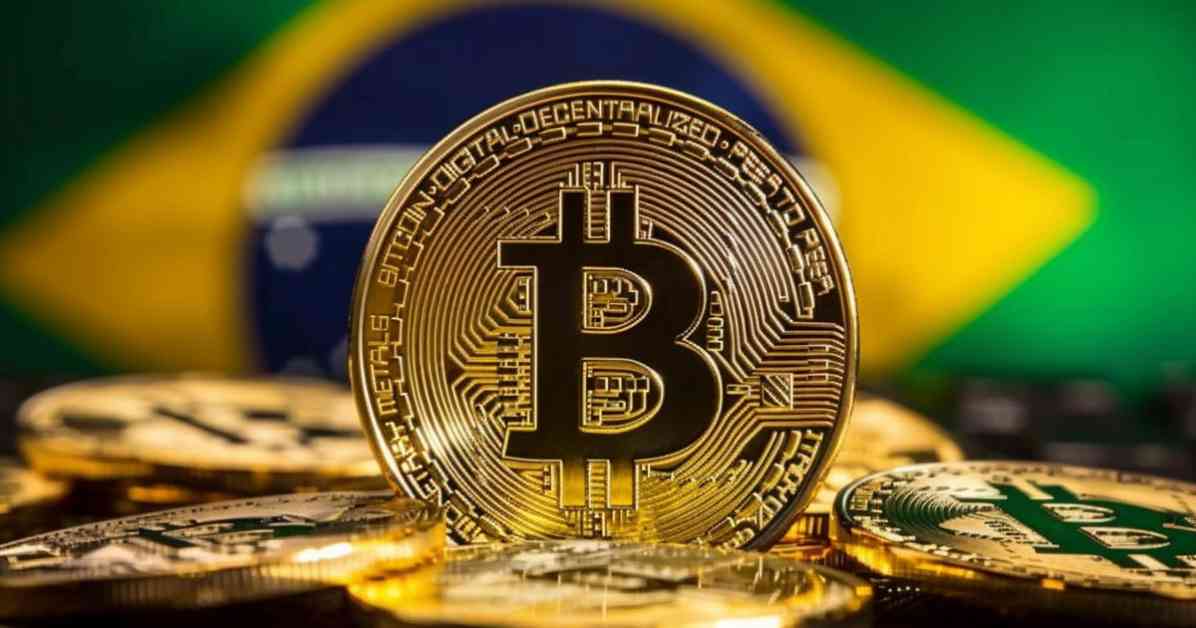As Brazilians face the challenge of protecting their wealth against the country’s annual currency depreciation of 12% to 13%, the need for alternative investment options becomes increasingly evident. Cauê Oliveira, the Head of Research and on-chain analyst at BlockTrends Brazil, highlights the urgency of finding assets that can outperform this depreciation rate to prevent individuals from becoming poorer each year. In this context, Bitcoin emerges as a promising asset that has the potential to safeguard wealth in the face of currency devaluation.
The Case for Bitcoin as a Hedge Against Currency Depreciation
Over the past decade, Bitcoin has demonstrated impressive performance, with an average annual return of 184.96%. Despite its inherent volatility, including years with negative returns, such as -58.6% in 2014 and -72.56% in 2018, Bitcoin has proven to be a resilient investment option. This resilience is particularly valuable in the context of Brazil’s currency debasement, as Bitcoin’s robust returns have the potential to offset the erosion of purchasing power caused by the depreciation of the Brazilian real.
In comparison to traditional assets like gold, the S&P 500, the Nasdaq, and Brazil’s Bovespa index, Bitcoin stands out as a high-performing asset that has consistently outpaced inflation and currency depreciation. While gold has averaged a 5.65% annual return over the past decade, with its highest annual return reaching 25.12% in 2020, Bitcoin’s average return far exceeds that of gold and other traditional investments. The S&P 500 and Nasdaq indices have shown average yearly returns of 10.66% and 15.28%, respectively, while Brazil’s Bovespa index has averaged 9.75%. Additionally, the Selic rate, Brazil’s benchmark interest rate, has averaged 9.36% over the same period.
Bitcoin as a Diversification Strategy
Diversification is a key principle in investment strategy, as it helps to mitigate risk and protect against market fluctuations. By adding Bitcoin to their investment portfolios, Brazilian investors can benefit from the diversification that this digital asset offers. Unlike traditional assets that are subject to the economic conditions of a specific country or region, Bitcoin operates on a global scale, providing investors with exposure to a diverse range of market forces.
Furthermore, Bitcoin’s decentralized nature and limited supply make it a unique asset that is not directly influenced by government policies or central bank interventions. As a result, Bitcoin can serve as a hedge against geopolitical risks, currency devaluation, and inflation, offering investors a level of protection that traditional assets may not provide.
The Importance of Earning Above the Devaluation Rate
Cauê Oliveira underscores the significance of investing in assets that can generate returns above the devaluation rate of the Brazilian real. Without assets that outperform the currency depreciation, individuals risk seeing their wealth erode over time, as the purchasing power of their savings diminishes. By allocating a portion of their investment portfolio to high-performing assets like Bitcoin, Brazilian investors can potentially offset the negative impact of currency devaluation and preserve their wealth in the long run.
In conclusion, Bitcoin emerges as a compelling investment option for Brazilian investors seeking to protect their wealth against the country’s annual currency depreciation. With its strong performance record, diversification benefits, and ability to outpace inflation, Bitcoin offers a viable solution for safeguarding wealth in an environment of economic uncertainty and currency devaluation. By considering Bitcoin as part of their investment strategy, Brazilian investors can position themselves for long-term financial stability and growth.

















